Working within the vast world of Arabic poetry, writer, translator, and professor Huda J. Fakhreddine has done much to elucidate the movements of literary forms throughout history, the necessity of constantly interacting with tradition, and the inner universe of poems as they communicate and exchange with one another. Through her extensive knowledge and sensitivity to the capacities of poetic language, Fakhreddine has demonstrated powerfully that, as in a piece by her father that she translated: “Poetry is the deepest sea, distant yet more urgent than surf breaking on rocks.” Here, in this wide-ranging interview, Alton Melvar M Dapanas speaks to her on the importance of form and meter, the necessity of removing Arabic poetry from reductive study, the ongoing engagement of reading and translation, and the intimate way she came to love and feel safe in the world of a poem.
Alton Melvar M Dapanas (AMMD): Certain paradoxes and ironies made an impression in me after reading your latest book, The Arabic Prose Poem (2021): that the Arabic free verse, or the qasīdat al-tafīla, is not “free” in the way of its Anglophone (free verse) and Francophone (vers libre) counterparts, and that Arabic free verse poets like Nāzik al-Malāʾika and later on, Ahmad ʿAbd al-Muʿtī Hijāzī, are, surprisingly, the fiercest opponents of the prose poem.
Huda J. Fakhreddine (HJF): Meter is the marker of poetry in the Arabic tradition, even if symbolically and not fundamentally. It is the fence that separates poetry from other forms—even those that have strong claims to the poetic. The modernist movement of the 20th century was the first organized and theorized effort to jump the fence of meter; this doesn’t mean that the fence was not jumped before, only that it was not done so in such a collective and deliberate manner. The Arabic free verse poem was the result of that formal experimentation or innovation.
But a more accurate label than “free verse” is qaṣīdat al-tafʿīla. The tafʿīla is the single foot or metrical unit, and a pattern of tafʿīlas makes up a meter in classical prosody. The modern poets no longer committed to the meters in their full patterns, but simplified them or reduced them to their building units (the individual tafʿīla), and often in qaṣīdat al-tafʿīla, the poem is built on a single metrical unit and its variations. The term free verse (al-shiʿr al- ḥurr) is thus confusing and not very accurate, since such poems still adhere to metrical considerations. The use of the term free verse is a testament to the influence of translation in the formative years of the Arabic modernist movement—though, as I argue in the book, translation was not that most decisive influence. I think the conversation with the Arabic poetic tradition, even when antagonistic and fraught, is really at the core of that movement, and is the real springboard to its most significant contributions. This is also why the term qaṣīdat al-tafʿīla is the most reflective of the movement’s intervention in form and its thinking about the role of meter.

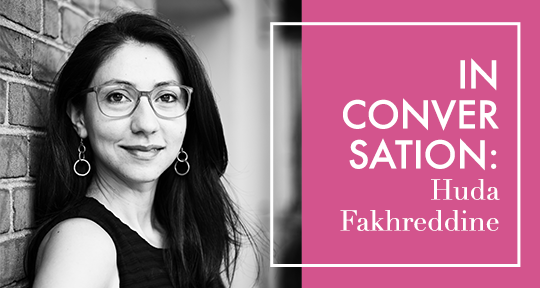


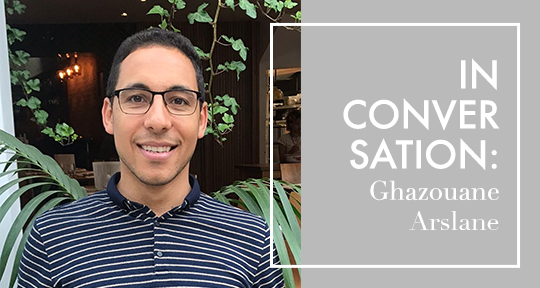
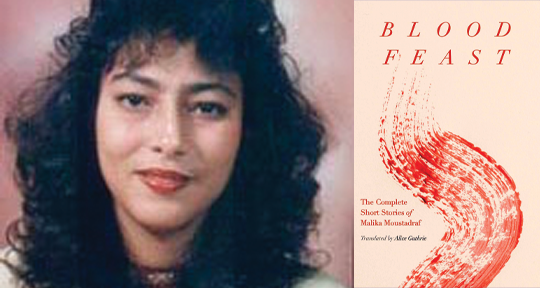
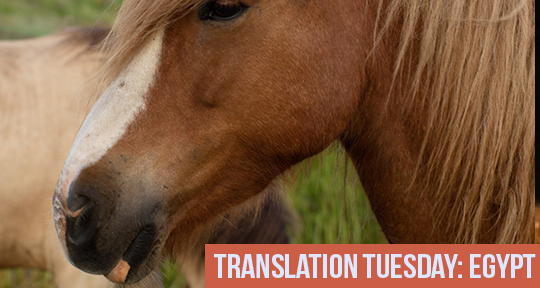
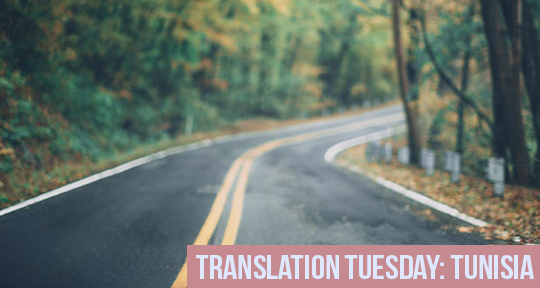
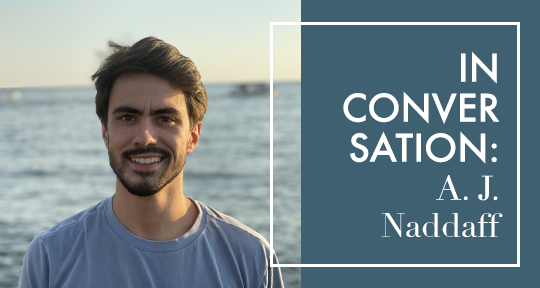


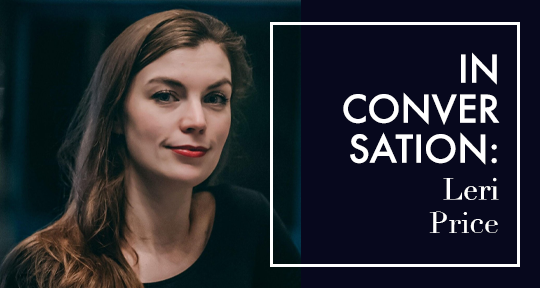

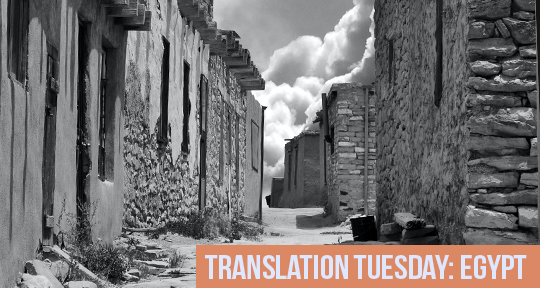
From Silly to Deadly: On Shalash the Iraqi by Shalash
. . .key to the humourist’s arsenal is none other than language itself—its malleability, its capacity for aggrandisement and diminishment alike.
Shalash the Iraqi by Shalash, translated from the Arabic by Luke Leafgren, And Other Stories, 2023
Anonymity fascinates and seduces. Endless speculations have circled invasively around who Elena Ferrante “truly” is; Catherine Lacey’s recent Biography of X reckons with erasing a layered past with a single letter of the alphabet; the first season of Bridgerton, the hit Regency-era romance on Netflix, has its narrative engine propelled by the question of Lady Whistledown’s real identity. These instances from the Global North exemplify the allure of mystery, but they fail to account for the stakes of remaining nameless in a political climate where to unveil oneself might be to threaten one’s own safety.
One might, in a moment of facetiousness, think of the eponymous chronicler of Shalash the Iraqi as the Lady Whistledown of Iraq’s Sadr City (or Thawra City, as it is lovingly christened by Shalash). Both issued frequent dispatches from within the epicentre of social disarray, guaranteeing the pleasure of gossip. More importantly, their pseudonymous veneers facilitated a lurid candour that might not otherwise have been possible.
There the similarities end. The respectable circles of upper-crust London did not live in the penumbra of foreign occupation. Nor were they plagued with the constant risk of spectacular sectarian violence, or hampered by a corrupt government that has “thieves, cheats, swindlers, traders in conspiracies” for politicians. It was against such chaos that Shalash released his explosive, timely blog posts, garnering a rapidly expanding local readership despite patchy Internet access in the country. The academic Kanan Makiya tells us, in his introduction, that people were printing out the posts, “copying them longhand,” “bombarding Shalash with questions and opinions.” Even high-ranking cadres could not resist partaking in the fanfare: one official expressed admiration while entreating Shalash not to mock him, for fear of his children’s potential disappointment. Another claimed that upon reading the daily communiqués, he would fall off his chair laughing.
Laughter, perhaps, can always be counted on to forge an affinity, if not a unity, beyond fractures of sect, status, and ethnic affiliation. Iraqis would “drop everything for a good laugh”; they gather in bars and down glasses of arak to immerse themselves in a “great, communal, and nondenominational drunkenness.” Shalash knows this, and abundantly turns it to his advantage. Nothing and no one is spared from the crosshairs of his ridicule, populated by a variegated cast that encompasses sermonisers, soldiers, suicide bombers, and donkeys. A vice-president’s verbal pomposity sounds like “he just ate a few expensive dictionaries and is about to lose his lunch.” A woman about to be married off to an Australian cousin is told, should her fiancé divorce her, “just tell everyone that he’s a terrorist and you’ll have nothing to worry about.” An odious neighbour, eager to save a spot for himself in paradise, proselytises the necessity of voting in the referendum for Iraq’s new constitution: “Don’t you know the going rate for rewards in heaven for helping ratify the constitution? It’s worth a hundred visits to the shrine of the Eighth Imam, and that’s on the far side of Iran!” When the narrator casually uses Google Earth, he is accused of lecherously spying on the women of his residence, sparking off a widespread hysteria—and court case—about the “violation of the morals of the block.” Each instance of mockery is a shard in a wider mirror of collective trauma.
READ MORE…
Contributor:- Alex Tan
; Language: - Arabic
; Place: - Iraq
; Writers: - Abu al-Qasim
, - Ahmed Saadawi
, - Catherine Lacey
, - Elena Ferrante
, - Emily Dickinson
, - Hassan Blasim
, - Kanan Makiya
, - Maya Abu al-Hayyat
, - Shalash
; Tags: - American occupation
, - anonymity
, - arabic literature
, - blogging
, - humor
, - Iraqi literature
, - social commentary
, - US Invasion of Iraq